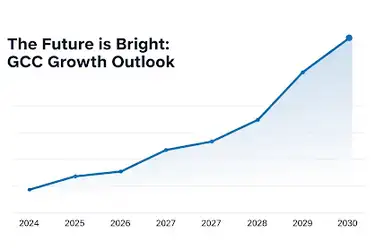A Fresh Opportunity for Real Estate Players
The year 2025 is bringing with it a much-needed breath of fresh air for the UAE’s real estate industry. In a significant update, the UAE Ministry of Finance has introduced changes that can help property firms significantly reduce their corporate tax liabilities—especially when it comes to fair-valued real estate assets.
For years, companies dealing in real estate have had to tread carefully around valuation methods and how these affect their bottom line under tax laws. But this latest move from the government marks a clear shift in approach: one that is designed to foster confidence, boost long-term investments, and reward companies with greater transparency and stability.

What’s Changing in the 2025 Tax Landscape
Under the previous tax framework, real estate assets that were fair-valued or revalued had to be considered under accounting profit, which, in turn, affected the taxable income. This meant higher book profits, often resulting in higher corporate tax—even though these “gains” were unrealised and only present on paper.
But from 2025, the new update offers real estate firms an option: they can elect to treat the gains from the fair valuation of their real estate properties as non-taxable, provided these gains are not actually realised in cash. This is a big deal for property companies that hold onto their assets for long-term capital appreciation or rental income, as opposed to flipping them for quick profits.
This election, however, is not automatic. Companies need to opt-in formally and ensure they follow the updated compliance guidelines. But for those who do, the potential tax savings could be significant—and game-changing.

More Than Just a Tax Break—A Strategic Shift
This change is more than just a temporary benefit. It signals the government’s broader vision for the real estate industry in the UAE. Authorities are clearly recognising that unrealised gains should not be treated the same way as tangible profits. This move aligns the country with other mature tax jurisdictions where similar exemptions exist.
For firms that have invested heavily in building residential towers, commercial office spaces, or expansive retail hubs, this update brings relief. Instead of being penalised for fair value gains on long-held properties, they can now breathe easier, knowing their long-term investments will not lead to inflated tax bills year after year.
Who Benefits the Most?
Large property developers, real estate investment trusts (REITs), and even smaller leasing and property management firms stand to gain. Any business that fair-values its real estate assets under international accounting standards (like IFRS) can now consider this election to save on taxes.
It’s especially good news for firms with properties in high-demand locations like Dubai Marina, Downtown Dubai, Abu Dhabi Corniche, or up-and-coming zones such as Sharjah Waterfront or Ras Al Khaimah. As the property values in these areas have seen steady appreciation, this exemption could mean millions in potential tax savings for some of the bigger players.

What Companies Need to Do Next
To take advantage of the 2025 tax update, real estate firms will need to take a few steps:
First, assess their current asset base and determine which properties have been fair-valued under IFRS. Next, work with their tax advisors to evaluate the impact of the exemption on their overall tax liability.
Then comes the paperwork. Firms will need to formally elect this exemption and submit the necessary documentation during their tax return process. Most importantly, they need to be ready to justify that the gains are indeed unrealised and reflected only as accounting entries.
Proper records, valuation reports, and a clear audit trail will be crucial to ensure compliance. Transparency is key.
Why This Could Drive More Foreign Investment
Taxation and clarity go hand in hand. One of the biggest turn-offs for foreign investors is tax uncertainty—especially around property assets. But with this update, the UAE is once again proving that it’s committed to maintaining a globally competitive, investor-friendly environment.
Foreign institutional investors looking at the UAE real estate market can now rest assured that they won’t be unfairly taxed on paper gains. This will likely encourage more cross-border deals, joint ventures, and investment inflows into the UAE’s booming property sector.
This also comes at a time when global markets are uncertain, and investors are looking for safe havens. With this tax policy change, the UAE continues to position itself as not just a luxury destination, but a smart, long-term investment hub.

Will It Lead to a Property Surge in 2025?
There’s a strong chance that this tax relief could spark a fresh wave of property development and acquisitions in 2025. Developers who were hesitant to launch new projects due to tax implications might now see a clearer, more profitable path ahead.
At the same time, companies with existing land banks and idle properties may be motivated to capitalise on their assets now that future fair value gains won’t be a tax burden. This could lead to more projects breaking ground, more units entering the market, and ultimately, a more dynamic real estate landscape.
Not Without Its Challenges
While the benefits are promising, it’s important not to overlook the challenges. For one, this update requires a deep understanding of accounting principles and corporate tax rules. Smaller firms without dedicated finance teams may find it complex to navigate.
There’s also the matter of timing. Firms must ensure they make the election within the allowed time frame, or risk missing out on the exemption entirely. And with the potential for audits, any misstep in documentation could turn costly.
Still, these are manageable hurdles, especially when weighed against the long-term financial upside.

A Boost to UAE’s Vision for a Diversified Economy
This policy change is just one piece of the puzzle, but it plays an important role in the UAE’s broader economic goals. The country is continuously working to diversify its economy, reduce oil dependence, and become a hub for finance, technology, and real estate.
By modernising its tax policies to be more in line with international standards, the UAE is also sending a powerful message: it’s open for business and committed to creating a fair, transparent, and thriving environment for businesses of all sizes.
Real estate has always been one of the cornerstones of the UAE’s success story. With initiatives like this, the sector is not only being protected but empowered to reach new heights.
Conclusion: A Smart Move That Could Reshape the Industry
The UAE’s 2025 tax update may sound technical on the surface, but its impact is anything but ordinary. It offers real estate companies a rare opportunity to align their growth strategies with smarter tax planning.
By removing the burden of taxing unrealised fair value gains, the government is giving companies the room to breathe, expand, and reinvest. For firms willing to understand and implement the changes, the financial rewards could be substantial.
More than just a tax break, this update reflects a mature, forward-thinking approach—one that acknowledges the unique nature of property investments and supports long-term value creation.
As 2025 approaches, real estate firms across the UAE would do well to take a closer look at their books, re-strategise their asset portfolios, and make the most of this powerful policy shift. In a market as fast-moving as the UAE’s, those who act early will likely be the biggest winners.
Do follow UAE Stories on Instagram
UAE and Bhutan Launch AI Initiative to Drive Economic Growth













